Find Help
More Items From Ergsy search
-
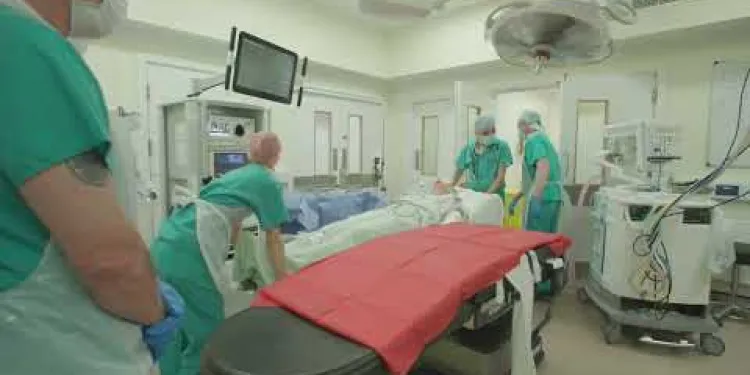
Prostate Surgery
Relevance: 100%
-

How does surgery treat prostate cancer?
Relevance: 83%
-

What are the side effects of prostate cancer surgery?
Relevance: 81%
-
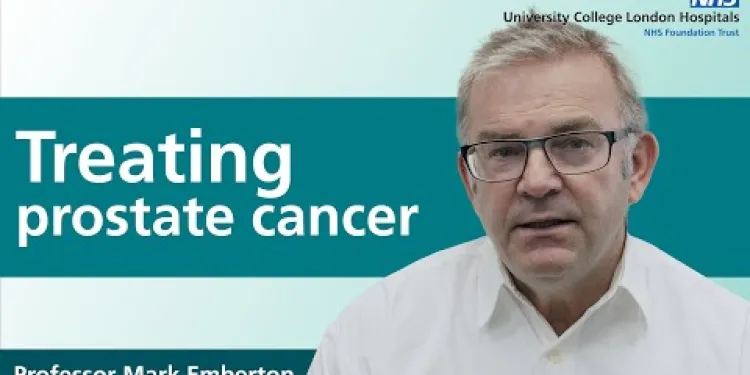
Treating prostate cancer
Relevance: 65%
-

How is prostate cancer treated?
Relevance: 64%
-

When is surgery recommended for BPH?
Relevance: 58%
-
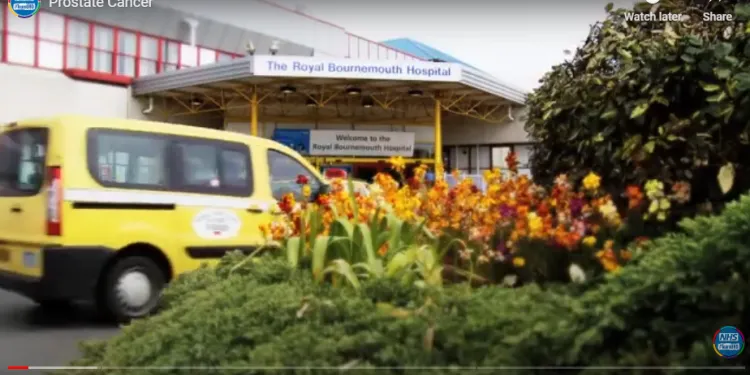
What is Prostate Cancer?
Relevance: 58%
-

Is focal therapy an option for prostate cancer?
Relevance: 58%
-
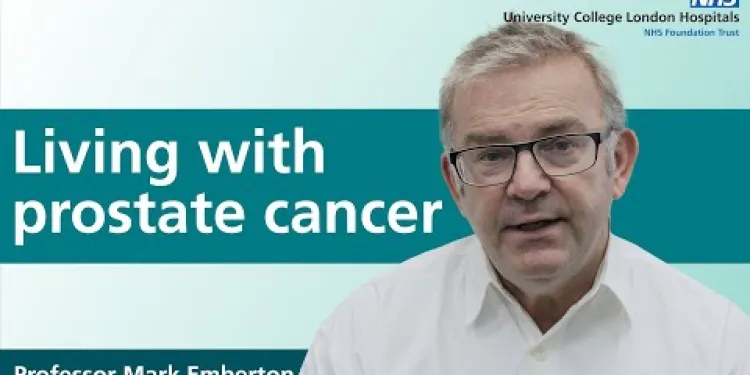
Living with prostate cancer
Relevance: 58%
-

Is BPH the same as prostate cancer?
Relevance: 56%
-
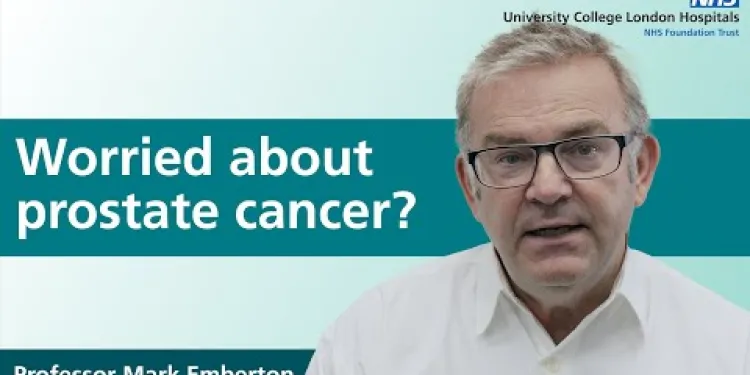
Prostate cancer diagnosis and tests
Relevance: 54%
-
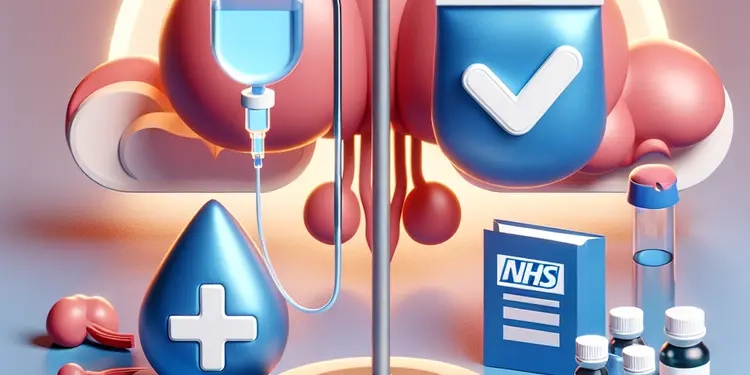
When is chemotherapy used for prostate cancer?
Relevance: 54%
-

Can prostate cancer recur after treatment?
Relevance: 54%
-
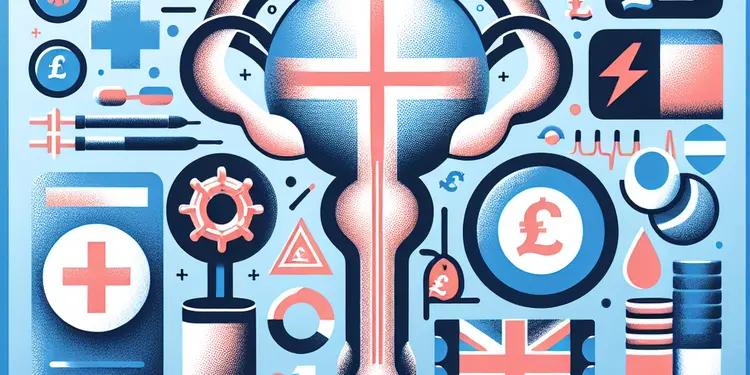
Can Abiraterone be used for early-stage prostate cancer?
Relevance: 53%
-
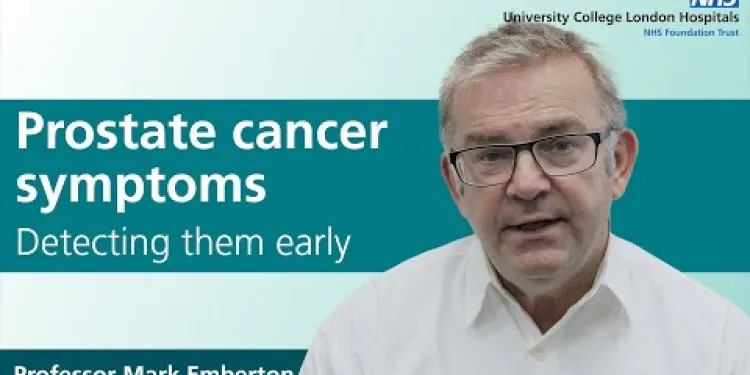
Prostate cancer symptoms - detecting them early
Relevance: 53%
-

What is active surveillance in prostate cancer treatment?
Relevance: 53%
-

What factors determine the treatment plan for prostate cancer?
Relevance: 52%
-

Does BPH increase the risk of prostate cancer?
Relevance: 52%
-

what is benign prostate hyperplasia (non-cancerous)?
Relevance: 52%
-
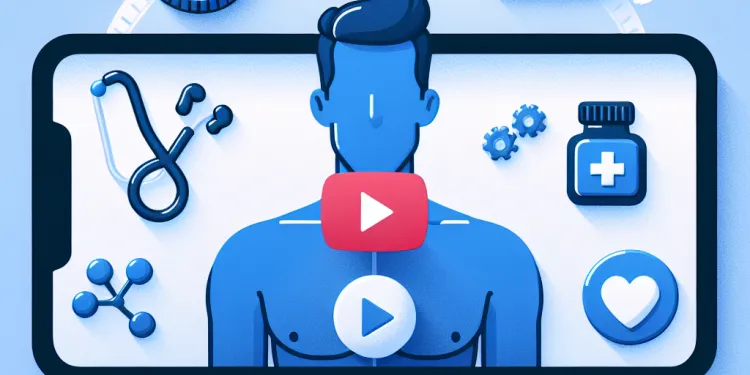
Am I more at risk of prostate cancer?
Relevance: 51%
-

Does Abiraterone cure prostate cancer?
Relevance: 51%
-
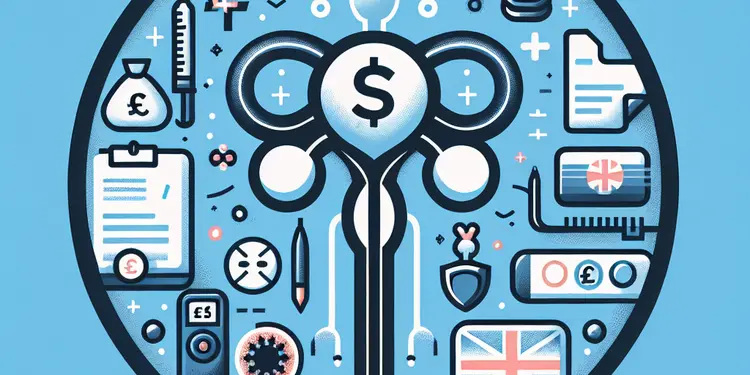
How is advanced prostate cancer treated?
Relevance: 51%
-

What is the role of immunotherapy in prostate cancer treatment?
Relevance: 51%
-
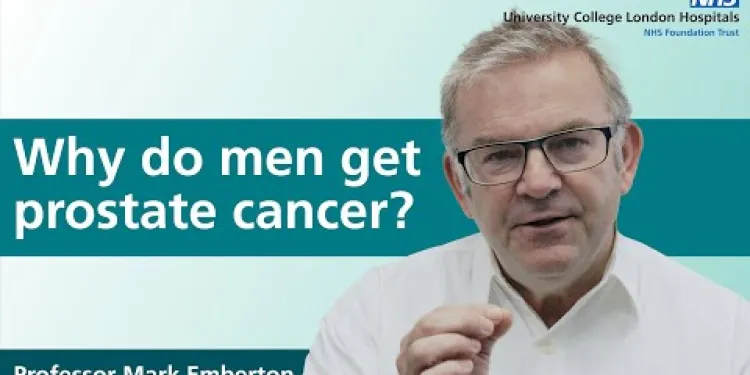
Why do men get prostate cancer?
Relevance: 50%
-

What are prostate supplements and do they work?
Relevance: 50%
-

Where can I find online resources for prostate cancer treatments on the NHS?
Relevance: 49%
-

How does hormone therapy help in treating prostate cancer?
Relevance: 49%
-

What is the prostate gland's role in the body?
Relevance: 48%
-

Is there a recommended amount of vegetables to consume for prostate health?
Relevance: 48%
-

Can I consult with NHS doctors online for prostate cancer?
Relevance: 48%
-

Can prostate cancer be treated with targeted therapy?
Relevance: 48%
-

Can I access prostate cancer information online through the NHS?
Relevance: 48%
-

Can lifestyle changes complement prostate cancer treatment?
Relevance: 48%
-
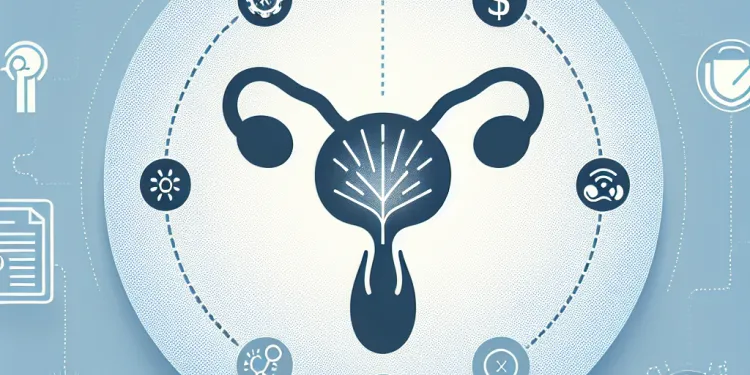
Hormone Therapy for prostate cancer
Relevance: 47%
-

How does cryotherapy work in treating prostate cancer?
Relevance: 47%
-

Prostate Specific Antigen (PSA) test
Relevance: 47%
-

Does the NHS offer an online hospital for prostate cancer?
Relevance: 46%
-

Does the NHS offer an online hospital for prostate cancer?
Relevance: 46%
-

Royal Berkshire NHS Foundation Trust: Radiotherapy for prostate cancer
Relevance: 46%
-

Is there an NHS app for managing prostate cancer care?
Relevance: 46%
Prostate Surgery: Important Information
Introduction to Prostate Surgery
Prostate surgery is a medical procedure typically performed to treat conditions affecting the prostate gland, most commonly prostate cancer or benign prostatic hyperplasia (BPH). The prostate is a small gland located below the bladder in men and surrounds the urethra. This gland plays a vital role in male fertility by producing seminal fluid. Prostate surgery aims to remove part or all of the prostate gland to alleviate symptoms or treat cancer.Types of Prostate Surgery
There are several types of prostate surgery, with the most common being: - **Radical Prostatectomy**: This involves the complete removal of the prostate gland, often performed to treat prostate cancer. It can be done via open surgery, laparoscopic surgery, or robotic-assisted surgery. - **Transurethral Resection of the Prostate (TURP)**: This procedure is mainly used to relieve symptoms of BPH. It involves removing parts of the prostate that are blocking urine flow through the urethra. - **Prostate Laser Surgery**: This uses lasers to remove prostate tissue and is often used for treating BPH. Different laser techniques include Holmium Laser Enucleation (HoLEP) and Photoselective Vaporisation (PVP).Preparation and Recovery
Prior to prostate surgery, patients in the UK usually undergo a series of assessments, including blood tests, imaging scans, and sometimes a biopsy. It's essential to discuss any medications being taken with the surgeon as some may need to be stopped before the operation. Recovery times vary depending on the type of surgery and individual circumstances. Generally, patients might spend a few days in hospital post-operation, with a catheter in place to assist with urination. Full recovery can take several weeks to months, during which patients are advised to avoid strenuous activities and follow their doctor's guidelines for care and physical activity.Risks and Complications
As with any surgical procedure, prostate surgery carries certain risks and potential complications. These may include urinary incontinence, erectile dysfunction, infections, and bleeding. Discussing these risks with your healthcare provider can help in making an informed decision and preparing for any potential outcomes.Conclusion
Prostate surgery is a significant medical procedure aimed at treating prostate-related conditions, most notably prostate cancer and BPH. Understanding the different types of surgery, preparation and recovery phases, and potential risks can help patients in the UK make educated decisions about their healthcare. Always consult with a specialist to get personalised advice and treatment plans.Prostate Surgery: Important Information
Introduction to Prostate Surgery
Prostate surgery is an operation for men. It helps when there are problems with the prostate gland. The prostate is a small part inside a man's body. It is below the bladder and helps make a liquid for fertility. Sometimes, the prostate needs surgery because of cancer or if it is too big. The surgery helps to make the problems go away.Types of Prostate Surgery
There are different kinds of prostate surgery: - **Radical Prostatectomy**: This surgery takes out the prostate completely. It is often done if there is cancer. It can be done in different ways, like open surgery, small cuts, or with a robot. - **Transurethral Resection of the Prostate (TURP)**: This helps if the prostate is too big and makes it hard to urinate. The doctor takes out parts that block the flow of urine. - **Prostate Laser Surgery**: This uses a laser to take out parts of the prostate. It is often used for a big prostate. There are different laser methods like HoLEP and PVP.Preparation and Recovery
Before surgery, doctors check a lot of things. Tests include checking your blood and sometimes looking inside the body. Some medicines might need to be stopped before surgery. After surgery, recovery can take time. People usually stay in the hospital for a few days. A tube called a catheter helps with urination. It is important to rest and follow what the doctor says. People should not do heavy work for some weeks or months.Risks and Complications
Like all surgeries, prostate surgery has risks. These can include trouble controlling pee, trouble with erections, getting an infection, and bleeding. Talking to your doctor can help you understand and prepare for these risks.Conclusion
Prostate surgery helps with problems like cancer and a big prostate. Knowing about the surgery, recovery, and risks can help you make good choices. Always talk to your doctor to get care that is right for you.Frequently Asked Questions
What is prostate surgery?
Prostate surgery is a medical procedure performed to treat various prostate conditions, including prostate cancer, benign prostatic hyperplasia (BPH), and prostatitis. The type of surgery will depend on the specific condition being treated.
What types of prostate surgery are available?
The main types of prostate surgery include radical prostatectomy, transurethral resection of the prostate (TURP), laser surgery, and minimally invasive robotic surgery.
Who is a candidate for prostate surgery?
Candidates for prostate surgery typically include men with significant symptoms related to BPH, prostate cancer that has not spread, or chronic prostatitis that does not respond to other treatments. A thorough evaluation by a healthcare professional is essential.
What are the potential risks of prostate surgery?
Risks can include infection, bleeding, urinary incontinence, erectile dysfunction, and complications related to anesthesia. Your surgeon will discuss these risks in detail prior to the procedure.
How should I prepare for prostate surgery?
Preparation may include blood tests, imaging studies, stopping certain medications, and fasting before the procedure. Your healthcare team will give you detailed instructions based on your individual needs.
What is the recovery time after prostate surgery?
Recovery time can vary depending on the type of surgery. Generally, it ranges from a few days to several weeks. Minimally invasive procedures usually have shorter recovery times compared to open surgeries.
Will I need to stay in the hospital after prostate surgery?
Yes, most patients will need to stay in the hospital for a short period after prostate surgery. The length of stay depends on the type of surgery and individual recovery progress.
When can I return to normal activities after prostate surgery?
Patients are usually advised to limit strenuous activity for several weeks post-surgery. Light activities can often be resumed within a few days, but it is important to follow your surgeon's specific recommendations.
Is prostate surgery painful?
Some discomfort is expected after surgery, but pain management options, including medications, will be provided to help control pain during recovery.
Can prostate surgery affect sexual function?
Prostate surgery can impact sexual function, particularly erectile function. The extent of impact varies and can depend on the type of surgery and individual patient factors. Discuss potential outcomes with your surgeon.
What follow-up care is required after prostate surgery?
Follow-up care typically includes regular check-ups, PSA (prostate-specific antigen) blood tests, and monitoring for any complications or recurrence of prostate issues.
What are the alternatives to prostate surgery?
Alternatives to surgery may include medication, radiation therapy, hormone therapy, watchful waiting, or active surveillance. These options depend on the specific prostate condition and patient circumstances.
Will I need a catheter after prostate surgery?
Most patients will need a catheter temporarily after prostate surgery to help drain the bladder while it heals. The duration of catheter use will vary based on the type of surgery and individual recovery.
How do I choose the best surgeon for prostate surgery?
Choosing the best surgeon involves considering factors such as the surgeon’s experience, the number of similar procedures they have performed, patient reviews, and consultations. Referrals from your GP can also be helpful.
Can prostate surgery cure prostate cancer?
Prostate surgery, specifically a radical prostatectomy, can potentially cure prostate cancer if it is detected early and has not spread beyond the prostate gland. The success rate can vary, so discussing individual prognosis with your healthcare provider is essential.
What is prostate surgery?
Prostate surgery is an operation. Doctors do it to fix problems with the prostate. The prostate is a part of a man's body. It helps with making babies.
Tools that can help you:
- Pictures: Look at pictures to understand better.
- Videos: Watch videos that explain the surgery.
- Talk to someone: Ask a doctor or a nurse to explain it more.
Prostate surgery is a way doctors help fix problems with the prostate. The prostate can have issues like cancer, it can get too big (this is called BPH), or it might get swollen (called prostatitis). The kind of surgery depends on what the problem is.
If you are reading this, use tools like text-to-speech to help understand better. Also, talk to someone you trust if you have questions.
What kinds of surgery can you have for prostate problems?
If you have trouble with your prostate, doctors can do different kinds of surgery to help. Here are some types:
- Open Surgery: The doctor makes a big cut to take out the prostate.
- Keyhole Surgery: The doctor makes small cuts and uses tools to take out the prostate. It is also called "laparoscopic surgery."
- Robot-assisted Surgery: A special robot helps the doctor do the surgery through small cuts.
- TURP (Transurethral Resection of the Prostate): The doctor uses a thin tube to remove parts of the prostate through the penis. No cuts are needed.
If you have questions, ask your doctor. You can also talk to a nurse or support group. They can help you understand more.
The main types of surgery for the prostate are:
- Radical prostatectomy: Doctors remove the whole prostate.
- Transurethral resection of the prostate (TURP): Doctors take out parts of the prostate.
- Laser surgery: Doctors use a laser to help with the prostate.
- Minimally invasive robotic surgery: Doctors use small tools and robots to do the surgery.
Using pictures or videos might help you understand better. You can also ask someone to explain things to you in simple words.
Who can have prostate surgery?
Men who might need prostate surgery usually have a few reasons:
- They have big problems with BPH (a prostate issue that makes it hard to pee).
- They have prostate cancer that hasn't spread to other parts of the body.
- They have prostatitis (a sore prostate) that doesn't get better with normal treatments.
It's very important for a doctor to check them carefully.
Reading Tip: Using a ruler or a piece of paper to follow the lines can help. Listening to the text or having someone read it aloud can also make it easier to understand.
What can go wrong with prostate surgery?
Prostate surgery can sometimes cause problems. Here are some things that might happen:
- Pain or aching in the area where the surgery was done.
- Bleeding from where the surgery happened.
- Getting an infection.
- Trouble peeing normally.
- Problems getting an erection.
If you have questions, ask your doctor or nurse. They can help explain things clearly. You can also use pictures or videos to understand better.
There can be some problems, like getting an infection or bleeding. You might have trouble peeing or problems with erections. Anesthesia can also cause problems. Your doctor will talk to you about all these things before the operation.
How can I get ready for prostate surgery?
Getting ready for prostate surgery can be easy. Here are some simple steps to help you:
- Ask your doctor: Talk to your doctor and ask questions. They can help you know what to expect.
- Follow instructions: Your doctor will give you instructions. Follow them to be safe.
- Plan for help: Ask a friend or family member to help you after the surgery. You might need help at home.
- Make your home safe: Move things that might be in your way. Make sure you don’t trip or fall.
- Eat healthy food: Eating healthy food can help you heal faster.
You can also use pictures or videos to understand better. These tools can make it easier.
To get ready, you might need to do some blood tests and get pictures taken of your body. You might also have to stop taking some medicine and not eat for a little while before. Your doctors will tell you exactly what you need to do. If you need help, ask someone to go over the steps with you or use a reminder app to keep track of what you need to do.
How long does it take to get better after prostate surgery?
Getting better after prostate surgery takes time. Here is what you might want to know:
- You might need to stay in the hospital for a couple of days.
- It can take a few weeks to feel okay again.
- Try to rest a lot and ask for help if you need it.
- A doctor or nurse can tell you more about what to do when you get home.
- Using simple guides or videos can help you understand what to expect.
How long it takes to get better after surgery can be different for everyone. It depends on the kind of surgery. Usually, it can take a few days or a few weeks.
If the doctor only makes a small cut, you might get better faster than if they make a big cut.
Here are some helpful tips to feel better faster:
- Rest a lot.
- Follow the doctor’s advice.
- Ask for help when you need it.
- Use pillows to get comfy when you sit or lie down.
Do I need to stay in the hospital after prostate surgery?
If you have prostate surgery, you might need to stay in the hospital for a few days.
Here are some simple tips to make this information easier to understand:
- Ask your doctor or nurse to explain it to you in simple words.
- You can bring someone you trust to help you ask questions.
- Write down important information so you can read it later.
- Look for pictures or videos that show what happens during surgery.
It's okay to ask for help if you don't understand something.
Yes, most people will need to stay in the hospital for a little while after prostate surgery. How long you stay depends on the type of surgery and how you are healing.
When can I go back to my usual activities after prostate surgery?
After you have prostate surgery, your body needs time to heal. You might feel tired and sore.
Here’s when you can usually do things again:
- Walking: You can start walking a little bit each day right after surgery. Take it slow.
- Work: You might go back to work in about 2 to 6 weeks. It depends on your job.
- Driving: You can drive when you are not taking pain medicine and feel ready. This usually takes a couple of weeks.
- Exercise: You can start gentle exercises in about 4 to 6 weeks. Ask your doctor what is safe.
- Lifting heavy things: Do not lift anything heavy for about 6 weeks.
Always listen to your doctor’s advice. Everyone heals differently. Use tools like reminders on your phone or a calendar to help track your progress.
Do you have someone to help you at home? It can be good to have a friend or family member help you with groceries or cleaning.
After surgery, doctors usually tell people not to do hard exercise for a few weeks. You can start doing easy activities a few days after the surgery. Make sure to listen to your doctor’s advice about what you can do.
Does prostate surgery hurt?
Doctors try to make sure that you feel as little pain as possible during prostate surgery. They will give you medicine to help. You might feel some pain after the surgery, but doctors and nurses can give you medicine to make it better.
It is important to tell the nurses if you feel pain so they can help you.
If you are worried or have questions, you can ask your doctor or nurse. They are there to help you.
It is normal to feel sore after an operation. But don't worry, doctors will give you medicine to help with the pain while you are getting better.
Can having prostate surgery change how sex feels?
Prostate surgery can affect how you have sex. It can make it harder to get an erection. How much it changes things can be different for each person and depends on the type of surgery. Talk to your doctor about what might happen.
What care do you need after prostate surgery?
After you have prostate surgery, you need to take care of yourself to get better. Here are some things that can help:
- You may need to visit the doctor for check-ups. The doctor will see how you are healing.
- Take any medicine your doctor gives you. It helps you feel better.
- Try to walk a little bit every day. It helps your body heal.
- If you have any questions or feel worried, ask your doctor or nurse.
Helpful tools:
- A calendar can help you remember your doctor visits.
- A pill organizer can help you take your medicine on time.
After treatment, you need to visit the doctor regularly. The doctor will check your blood to look at PSA levels, which tell them about your prostate health. They will also check to make sure your prostate problems don’t come back.
What else can you do instead of prostate surgery?
There are other ways to help besides surgery. These ways are:
- Taking medicine.
- Using radiation therapy. This is a special kind of energy that helps the body.
- Getting hormone therapy. Hormones are chemicals in your body.
- Watchful waiting. This means the doctor will check you often but not do anything right away.
- Active surveillance. This is when doctors keep a close eye on you to see if things change.
The best choice depends on the prostate problem and the person’s needs.
It might help to use pictures or apps to better understand these words. You can also ask someone to read this with you.
Will I need a tube after prostate surgery?
After you have prostate surgery, doctors might use a tube called a catheter. This tube helps urine leave your body. It is usually only for a short time. The doctor or nurse will tell you how to take care of it.
If you want to learn more, you can:
- Ask your doctor questions.
- Use videos or pictures to understand better.
- Ask a friend or family member to explain it to you.
After prostate surgery, most people will need a tube called a catheter. This tube helps empty the bladder while it is getting better. How long a person needs the tube depends on the kind of surgery and how they heal.
How do I pick the best doctor for prostate surgery?
When picking the best surgeon, think about these things:
- How much practice the surgeon has had.
- How many times they have done the same type of surgery.
- What other patients say about the surgeon.
- Talk to the surgeon and ask questions.
Your family doctor can also suggest a good surgeon for you.
To make reading or understanding easier, using tools like a voice reader or having someone read aloud can help. Drawing or using pictures can also make things clearer.
Can an operation fix prostate cancer?
An operation can help some men with prostate cancer. This means the doctor removes the prostate to try to stop the cancer. It's not always a full cure. It depends on how big the cancer is and if it has spread. It's important to talk to your doctor about what is best for you.
Tip: Ask someone you trust to help you understand what the doctor says. You can also write down any questions you want to ask.
Prostate surgery is a way to treat prostate cancer. If doctors find the cancer early and it has not spread, this surgery can sometimes cure it. This type of surgery is called a radical prostatectomy.
How well the surgery works can be different for each person. It is important to talk to your doctor about what to expect.
Useful Links
Have you found an error, or do you have a link or some information you would like to share? Please let us know using the form below.
-->
This website offers general information and is not a substitute for professional advice.
Always seek guidance from qualified professionals.
If you have any medical concerns or need urgent help, contact a healthcare professional or emergency services immediately.
Some of this content was generated with AI assistance. We’ve done our best to keep it accurate, helpful, and human-friendly.
- Ergsy carfully checks the information in the videos we provide here.
- Videos shown by Youtube after a video has completed, have NOT been reviewed by ERGSY.
- To view, click the arrow in centre of video.
- Most of the videos you find here will have subtitles and/or closed captions available.
- You may need to turn these on, and choose your preferred language.
- Go to the video you'd like to watch.
- If closed captions (CC) are available, settings will be visible on the bottom right of the video player.
- To turn on Captions, click settings .
- To turn off Captions, click settings again.
More Items From Ergsy search
-

Prostate Surgery
Relevance: 100%
-

How does surgery treat prostate cancer?
Relevance: 83%
-

What are the side effects of prostate cancer surgery?
Relevance: 81%
-

Treating prostate cancer
Relevance: 65%
-

How is prostate cancer treated?
Relevance: 64%
-

When is surgery recommended for BPH?
Relevance: 58%
-

What is Prostate Cancer?
Relevance: 58%
-

Is focal therapy an option for prostate cancer?
Relevance: 58%
-

Living with prostate cancer
Relevance: 58%
-

Is BPH the same as prostate cancer?
Relevance: 56%
-

Prostate cancer diagnosis and tests
Relevance: 54%
-

When is chemotherapy used for prostate cancer?
Relevance: 54%
-

Can prostate cancer recur after treatment?
Relevance: 54%
-

Can Abiraterone be used for early-stage prostate cancer?
Relevance: 53%
-

Prostate cancer symptoms - detecting them early
Relevance: 53%
-

What is active surveillance in prostate cancer treatment?
Relevance: 53%
-

What factors determine the treatment plan for prostate cancer?
Relevance: 52%
-

Does BPH increase the risk of prostate cancer?
Relevance: 52%
-

what is benign prostate hyperplasia (non-cancerous)?
Relevance: 52%
-

Am I more at risk of prostate cancer?
Relevance: 51%
-

Does Abiraterone cure prostate cancer?
Relevance: 51%
-

How is advanced prostate cancer treated?
Relevance: 51%
-

What is the role of immunotherapy in prostate cancer treatment?
Relevance: 51%
-

Why do men get prostate cancer?
Relevance: 50%
-

What are prostate supplements and do they work?
Relevance: 50%
-

Where can I find online resources for prostate cancer treatments on the NHS?
Relevance: 49%
-

How does hormone therapy help in treating prostate cancer?
Relevance: 49%
-

What is the prostate gland's role in the body?
Relevance: 48%
-

Is there a recommended amount of vegetables to consume for prostate health?
Relevance: 48%
-

Can I consult with NHS doctors online for prostate cancer?
Relevance: 48%
-

Can prostate cancer be treated with targeted therapy?
Relevance: 48%
-

Can I access prostate cancer information online through the NHS?
Relevance: 48%
-

Can lifestyle changes complement prostate cancer treatment?
Relevance: 48%
-

Hormone Therapy for prostate cancer
Relevance: 47%
-

How does cryotherapy work in treating prostate cancer?
Relevance: 47%
-

Prostate Specific Antigen (PSA) test
Relevance: 47%
-

Does the NHS offer an online hospital for prostate cancer?
Relevance: 46%
-

Does the NHS offer an online hospital for prostate cancer?
Relevance: 46%
-

Royal Berkshire NHS Foundation Trust: Radiotherapy for prostate cancer
Relevance: 46%
-

Is there an NHS app for managing prostate cancer care?
Relevance: 46%


